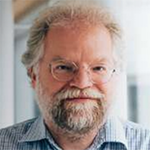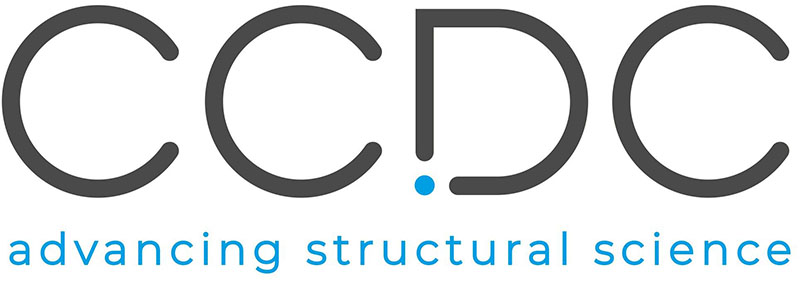Discover an informative webinar on the transformative impact of machine learning (ML) and artificial intelligence (AI) in life sciences. Attendees will gain insights into the challenges, including data quality and ethics, and how the findable, accessible, interoperable and reusable (FAIR) data principles and the Cambridge Structural Database (CSD) can advance AI applications.
Although significant barriers still exist, the outcomes of using ML and AI in life science industries, as well as healthcare, green energy and technology, could be revolutionary. Challenges span political will, sustainability, ethics, infrastructure and the talent pipeline. A basic limitation for many, however, is simply the availability, quality and trustworthiness of data, including data for testing, training and validating models.
The FAIR guiding principles for scientific data management and stewardship[1] were published in 2016 to formalize the priorities for enhancing data’s machine-actionability.
Data that are AI-ready need to be properly standardized, curated, interoperable, be of high quality and appropriately defined with standardized metadata. This ensures that the data are usable now and in the future for humans and machines.
The CSD has already been used to train ML models relevant to the pharmaceutical industry, e.g., to help predict aqueous solubility,[2] and its application for training ML models for drug discovery is already recognized[3].
The CSD contains over 1.28 million fully curated small-molecule organic and metal–organic crystal structures and is fundamentally structured and designed to be underpinned by FAIR data principles. This, along with being a CoreTrustSeal-certified data repository, mark the CSD as a trusted and high-quality resource that could break down some of the barriers preventing the advancement of ML and AI in life sciences.
Register for this webinar to learn about the challenges of using ML and AI in life sciences, the importance of quality data management and why the CSD is trusted by academic and industrial institutions around the world.
Read more...
[1] Wilkinson, M.D., Dumontier, M., Aalbersberg, I.J., Appleton, G., Axton, M., Baak, A., Blomberg, N., Boiten, J.W., da Silva Santos, L.B., Bourne, P.E. and Bouwman, J., 2016. The FAIR Guiding Principles for scientific data management and stewardship. Scientific Data, 3(1), pp.1-9.
[2] Zhu, X., Polyakov, V.R., Bajjuri, K., Hu, H., Maderna, A., Tovee, C.A. and Ward, S.C., 2023. Building machine learning small molecule melting points and solubility models using CCDC melting points dataset. Journal of Chemical Information and Modeling, 63(10), pp.2948-2959.
[3] Kalash, L.N., Cole, J.C., Copley, R.C., Edge, C.M., Moldovan, A.A., Sadiq, G. and Doherty, C.L., 2021. First global analysis of the GSK database of small molecule crystal structures. CrystEngComm, 23(32), pp.5430-5442.
Read Less...
Speakers

Dr. Ola Engkvist, Head of Molecular AI in Discovery Sciences, AstraZeneca
Dr. Ola Engkvist is head of Molecular AI in Discovery Sciences, AstraZeneca R&D. He did his PhD in Computational Chemistry at Lund University, followed by a postdoc at Cambridge University. After working for two biotech companies, he joined AstraZeneca in 2004. He currently leads the Molecular AI department, where the focus is on developing novel methods for ML/AI in drug design, productionalizing the methods and applying the methods to AstraZeneca’s small-molecule drugs.

Dr. Jonathan Betts, Senior Leadership Team, CCDC
Dr. Jonathan Betts has over 20 years of experience in software sales and technology co-commercialization of life sciences, healthcare and research markets. He has worked in sales leadership and customer success roles building teams with a relentless focus on delivering value to customers.
Prior to joining CCDC, he co-founded and built a SaaS business with a global customer community, taking it through multiple funding rounds to profitability and a successful trade exit. His qualifications include a PhD in Gene Structure and Regulation and an MBA in Strategic Management.

Dr. Clare Tovee, Senior Scientific Editor, CCDC
Dr. Clare Tovee is a Senior Scientific Editor at the Cambridge Crystallographic Data Centre (CCDC), UK. She completed her PhD at the University of Leeds in Chemistry and joined the CCDC in 2014 as part of the Data and Community team. A core component of her role includes the scientific validation and curation of crystal structure data for entry into the Cambridge Structural Database (CSD), making it readable and accessible for AI, ML and manual use.
Who Should Attend?
This webinar will appeal to senior professionals from biotech and large pharma companies involved in the following areas:
- Drug discovery and development
- Cheminformatics
- Digital, data, analytics and informatics in pharmaceutical research
- Materials science
- Chemical discovery
- Medicinal chemistry
- Data mining
- Machine learning and AI
What You Will Learn
Attendees will learn about:
- The evolving reality of AI/ML in drug discovery
- The value of high-quality, curated data and why the CSD is a trusted data source for academic and industrial users worldwide
- What AI can and cannot do
Xtalks Partner
Cambridge Crystallographic Data Centre (CCDC)
Underpin your R&D decisions with real-world knowledge. Across discovery, stability, and formulation, thousands of scientists globally use the Cambridge Structural Database (CSD) to validate their small-molecule organic and metal-organic crystal structures. Assess stability, identify polymorphs, and hydrates, find scaffold hops, improve activity, design co-crystals, and more—all based on big-data findings from the experimentally-derived data.
The CSD is a certified, trusted database of fully curated and enhanced small-molecule organic and metal-organic structures. Our cutting-edge software lets you extract valuable insights from this data, and your proprietary data, to inform and accelerate your research.
We are the Cambridge Crystallographic Data Centre (CCDC). World-leading experts in structural chemistry data, software, and knowledge for materials and life sciences research and development since 1965.
You Must Login To Register for this Free Webinar
Already have an account? LOGIN HERE. If you don’t have an account you need to create a free account.
Create Account
